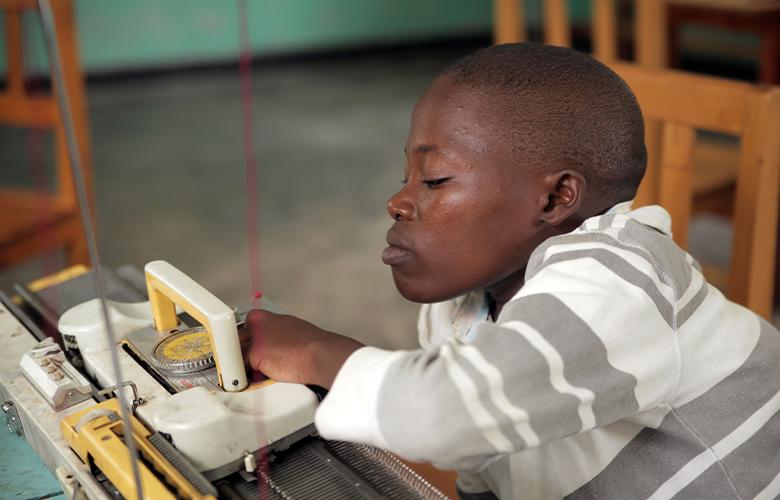
Last year, in commemoration of the International Day of Persons with Disabilities, I co-wrote a blog asking how we could do more to include people with disabilities in our work. Just one year later, I am pleased to announce the launch of the Umurimo Kuri Bose/Employment for All (UKB) activity in Rwanda. UKB will build upon EDC’s work in Rwanda but focus on enhancing economic opportunities for youth with disabilities.
I was raised in a family where social inclusion was a priority—my mother worked with young children with disabilities, and I followed her example. In high school and college, I worked with children and youth who had disabilities. I remember one young man with autism who was learning to navigate the adult world. I helped him with grocery shopping, reading, and learning and applying workplace skills. However, even with support services, he struggled to find his place—a struggle common to youth but magnified by his disability. These experiences drew me to my current work in Rwanda where stigma means that many youth with disabilities face barriers in securing livelihoods.
Youth with disabilities face particular challenges in accessing training and entering the workforce. Some youth do not have the literacy skills they need to attend vocational training, and some training programs are still working to accommodate the needs of these diverse students. Youth who have the necessary skills and qualifications to secure a job are often met with workplaces that are not disability-friendly or with employers who may not fully believe in their capabilities.
UKB seeks to address these challenges so the workplace is open to all youth. Through partnerships with local organizations, we will serve 1,560 youth (1,200 youth with disabilities and 360 youth without disabilities), delivering training on work readiness, entrepreneurship, and peer leadership, and connecting youth to work-based learning experiences, such as internships.
To ensure that youth with disabilities are welcomed into jobs, UKB will work with employers to help them understand how to better accommodate youth with disabilities. For example, employers may receive sign language training so they can communicate with interns or employees who are deaf or hard of hearing. We will also work with local partner organizations so they can deliver a comprehensive package of workforce services to youth or be better prepared to serve youth with multiple disabilities.
I am heartened and excited to see this addition to EDC’s work in Rwanda just one year after we said we wanted to deepen our work on social inclusion. I hope to be sharing more stories as this journey continues.
| Tania Tzelnic, an associate project director, provides management and technical support to EDC youth and workforce development projects. Her focus is on innovation, entrepreneurship, work-based learning, and building local partner capacity to address business needs. |

Add new comment